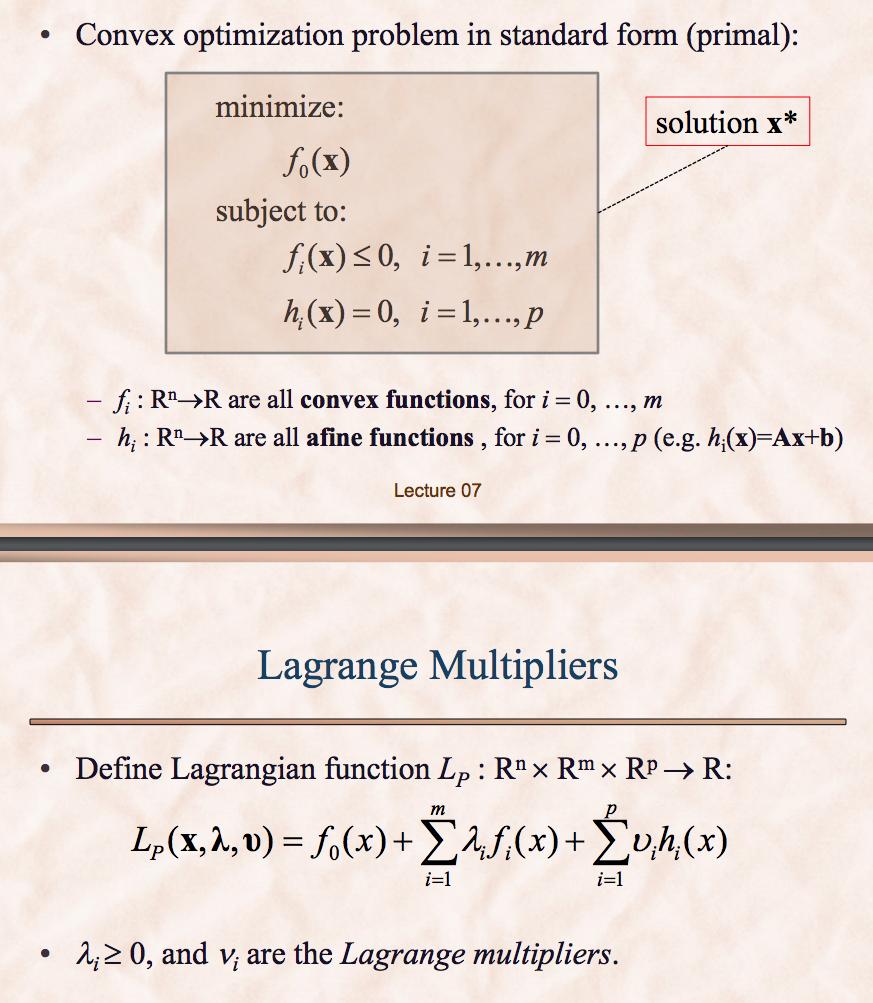Following the suggestion of jbowman, I derived the gradient w.r.t. only w and a and got the quadratic solution for w. Optimization problem:
minimize J(w) = $\frac{1}{2} || w -u ||^2$
such that:
$w^T (x − y) ≥ 1$
Constraint:
$ 1 - wz \le 0 $, where z = x-y.
Primal Lagrangian:
$L_P = \frac{1}{2} (w-u)^2 + \alpha(1-wz) $
where $\alpha \ge 0 $ is the Lagrange multiplier.
Set gradient w.r.t. w and a to zero:
$0 = \frac{dL}{dw} ==> w = u + \alpha z $
$0 = \frac{dL}{d\alpha} ==> z = 1/w $
Solving these two equations, I got
$w^* =\frac{u \ \pm \sqrt(u^2 + 4\alpha) }{2} $
This is the answer I came with, but not sure its right or not.

